Kosti, a city located on the western bank of the White Nile in Sudan’s White Nile State, is one of the few Sudanese cities that has maintained relative stability amid the conflict that has raged since April 2023. Situated about 260 kilometers south of Khartoum, it serves as a strategic transit hub linking northern and southern Sudan, a role that has made it a refuge for many internally displaced people.
Thanks to its geographical proximity to South Sudan and its river port, Kosti hosts a large number of people from South Sudanese ethnic groups such as Shilluk, Dinka, and Nuer, who arrived either fleeing conflict or seeking economic opportunities. The city is also home to a Coptic community that forms an integral part of Kosti’s social and economic fabric, contributing actively to its commercial and cultural life.
History and Origins
Kosti was founded in the late 19th century by a Greek merchant named Constantinos “Costas” Morissis, following the Anglo-Egyptian victory over the Mahdist State. Costas established a trading post on the White Nile along the route used by pilgrims from West Africa on their way to Mecca. The settlement grew rapidly and came to be known as “Costas,” a name that later evolved into “Kosti.”
Current Humanitarian and Security Situation
Kosti has become a safe haven for people displaced from conflict-affected areas across Sudan. Thousands have arrived from Khartoum, El-Gezira, Kordofan, and Darfur, as well as refugees from South Sudan seeking safety and access to basic services. According to the UNHCR, more than 149,000 people from South Sudan have been displaced into Sudan, most moving southward from Khartoum to White Nile State, which was already hosting around 110,000 South Sudanese refugees in established camps.
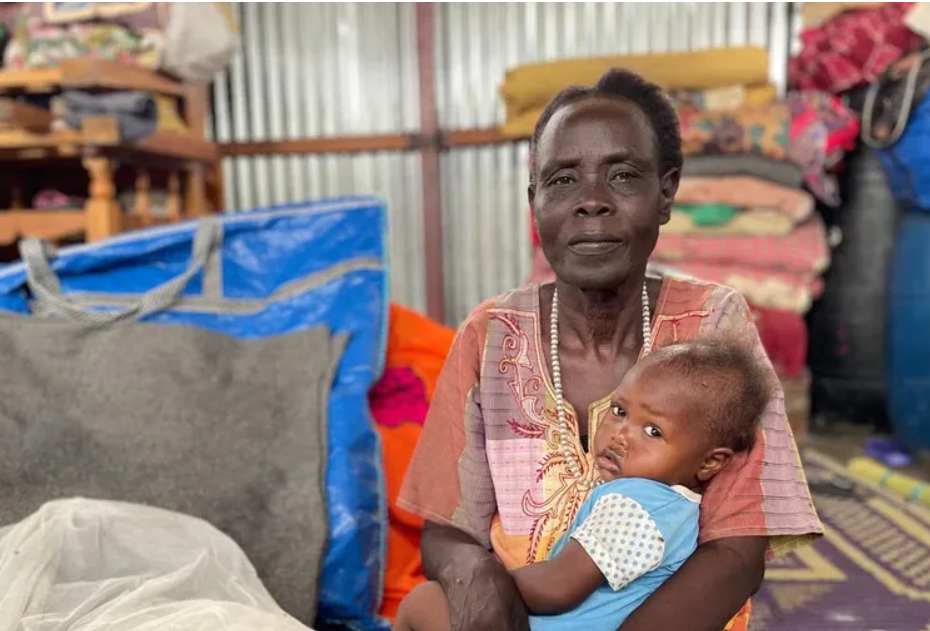
Refugees at the transit center in Renk, South Sudan, wait to be transported to Malut County. Source: UNHCR
This large influx of people has placed additional strain on the city, including pressure on housing, healthcare, and education services. At the same time, however, it has generated a new sense of dynamism in local markets and spurred community-led initiatives launched by youth groups and local organizations to help ease the hardships faced by the newcomers.
Kosti remains one of the few cities that have managed to maintain a degree of relative stability amid the ongoing conflict between the Sudanese Armed Forces and the Rapid Support Forces since April 2023. Despite this stability, the city has faced repeated security challenges, most notably drone attacks targeting military sites and vital facilities.
For instance, the headquarters of the 18th Infantry Division was hit in an attack that caused a massive explosion after a fuel depot was destroyed. Nevertheless, the city continues to experience occasional similar assaults, fueling residents’ concerns and threatening the fragile stability that has set Kosti apart from many other cities in the country.
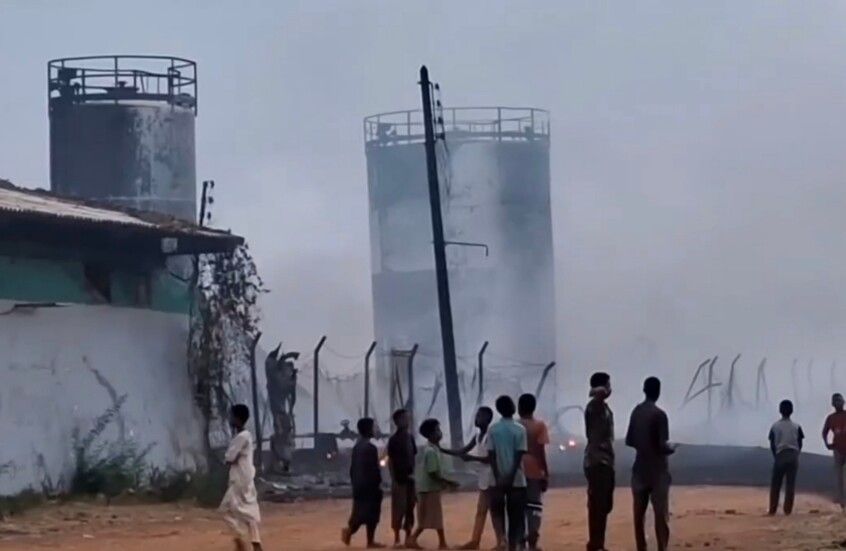
Fuel depots near the River Transport Authority in Kosti were attacked by drones. Source: Arab Radar
The city also experienced a severe health crisis in 2025, when a cholera outbreak claimed the lives of 58 people and infected around 1,300 others in just three days. The outbreak was attributed to contamination of the drinking water supply following the destruction of the local water network during military attacks.
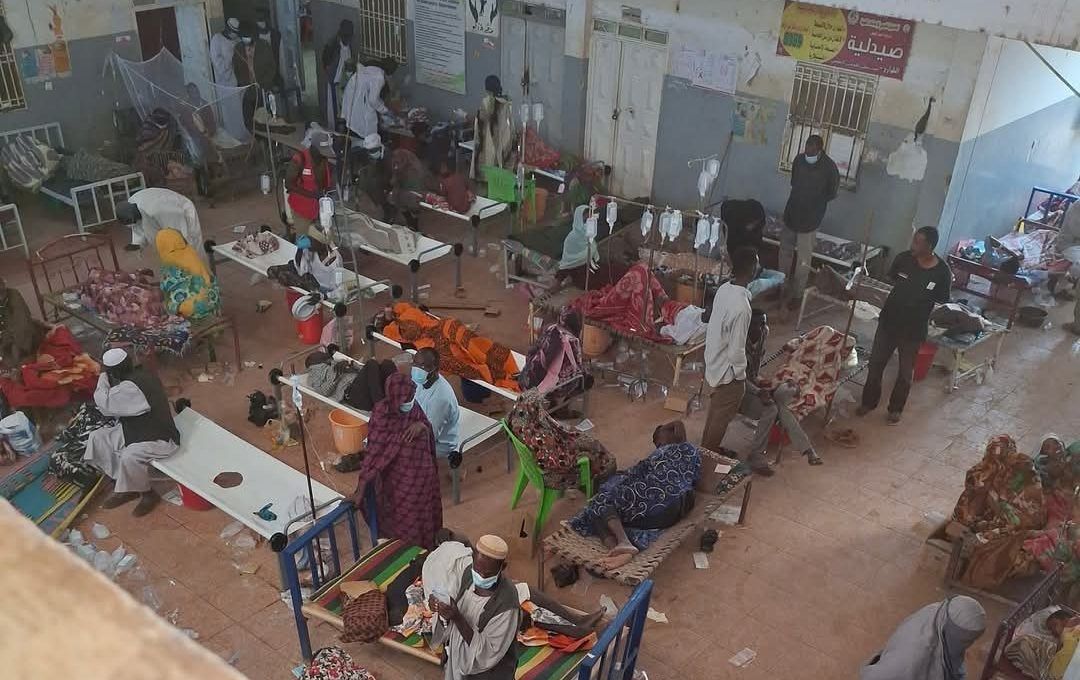
The situation at Kosti Hospital was described at the time as extremely worrying and out of control. Source: Radio Dabanga
Prominent Youth Initiatives in Kosti
Several youth-led and humanitarian initiatives have emerged in Kosti to support displaced people and ease their suffering, particularly those arriving from conflict-affected areas. Among the most notable are:
Al-Nasr Neighborhood Youth Initiative: This initiative launched a humanitarian project aimed at helping students facing financial or social difficulties that prevent them from completing their exam registration procedures. It also organized a community iftar at the displaced persons’ camp in Qoz Al-Salam area, where meals were distributed to displaced families.
In addition, the group introduced the “Eid Food Bag” initiative, which provided assistance to low-income families during Eid al-Fitr, a compassionate gesture that reflects the spirit of community solidarity that characterizes Kosti’s youth.
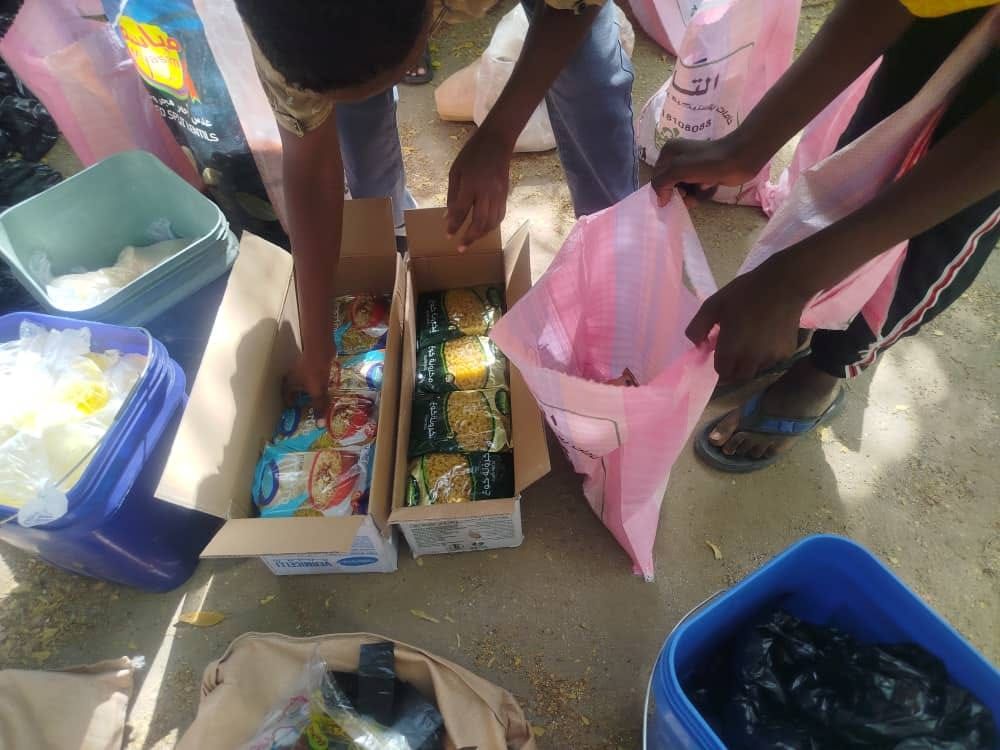
Distribution of Eid Food Bags to displaced families in Kosti by the Al-Nasr Neighborhood Youth Initiative. Source: Al-Nasr Youth Initiative Facebook page
Shabab Al-Khair Initiative: Through TikTok platform, the youth of Kosti launched a campaign to support shelter centers, such as Al-Inqaz (B) Camp and Arkweet School, by collecting donations and providing basic necessities for displaced people.
Kosti Organization for Culture and Development: The organization contributed to the rehabilitation of five middle schools in Kosti city, in addition to providing support to displaced and affected people through developmental and cultural projects.
Jisoor Al-Khair Initiative: This initiative provided specialized meals for children in the shelters, appealing to organizations and philanthropists to offer the necessary support.
Despite these efforts, significant challenges still face the displaced in Kosti, notably the shortage of food and potable water, alongside weak health and educational services. There remains an urgent need for continuous support from humanitarian organizations and local authorities to ensure the improvement of displaced people’s conditions and the fulfillment of their basic needs amid the ongoing influx of arrivals to the city.
The Copts in Kosti
Kosti hosts an estimated number of Copts, who form an integral part of the city’s social and economic fabric. They are known for their commercial activity in Kosti market, where many families run well-known shops passed down from their parents. Among these familiar local figures is “Victor” in Al-Nasr Al-Daraja Altanya, who managed one of the oldest shops, now continued by his children with the same family-oriented and traditional spirit that distinguished it over the years.
The Coptic Orthodox Church in Kosti serves as an important religious and social center for the Coptic community in the city and contributes to promoting religious and cultural coexistence. It is one of the city’s prominent landmarks, notable for its unique architectural style that draws attention and stands out in the local urban landscape, forming, along with the old markets and the White Nile, part of Kosti’s diverse identity.
It was observed that the Copts were among the first to return to the city after the waves of displacement Kosti experienced since the beginning of the war, following the restoration of stability and the removal of threats resulting from the Rapid Support Forces’ entry into the city.
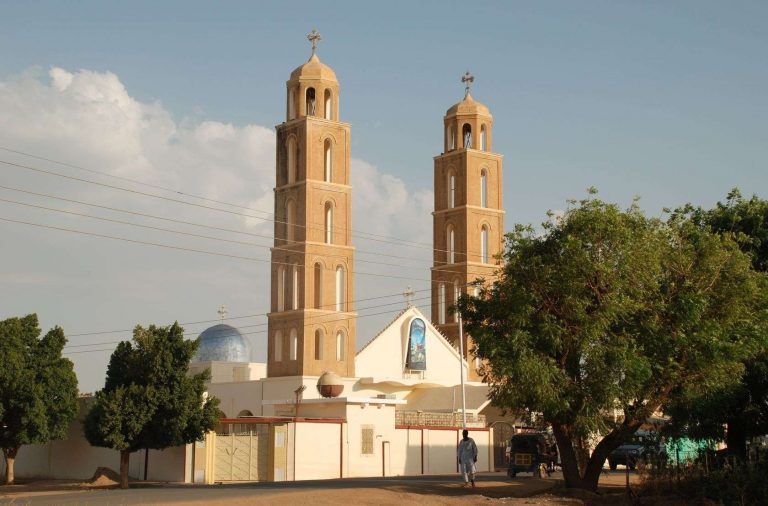
The Coptic Orthodox Church in Kosti. Source: blogspot
Markets in Kosti
Kosti is a vital commercial center in Sudan, boasting a number of markets that cater to the needs of local residents and visitors from surrounding villages and regions who come to the city to shop or seek medical treatment at its hospitals.
The Kosti Grand Market is one of the most prominent of these markets, renowned for its diverse commercial activities, which include the sale of fresh fruits and vegetables, clothing, foodstuffs, and even, occasionally, livestock.
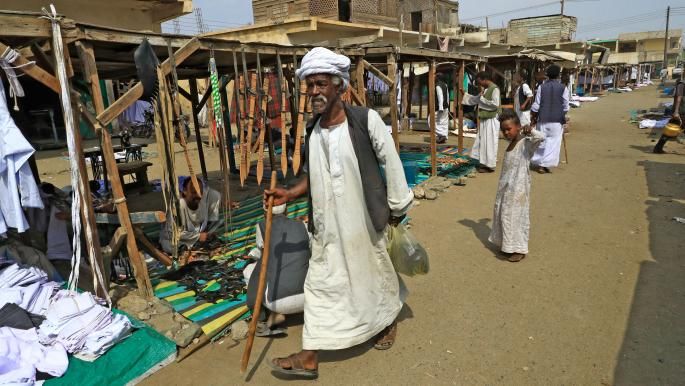
Various products are on display for sale at the Kosti Grand Market. Source: Al-Rakoba News
The market also includes Al-Malja Market, a section specializing in the sale of vegetables and fruits, both wholesale and retail, along with the fish market, where fresh fish are brought from the nearby White Nile River. Around the market, there are many local eateries specializing in preparing various kinds of fish, making the Grand Market a lively economic and culinary destination that combines commerce with local flavor.
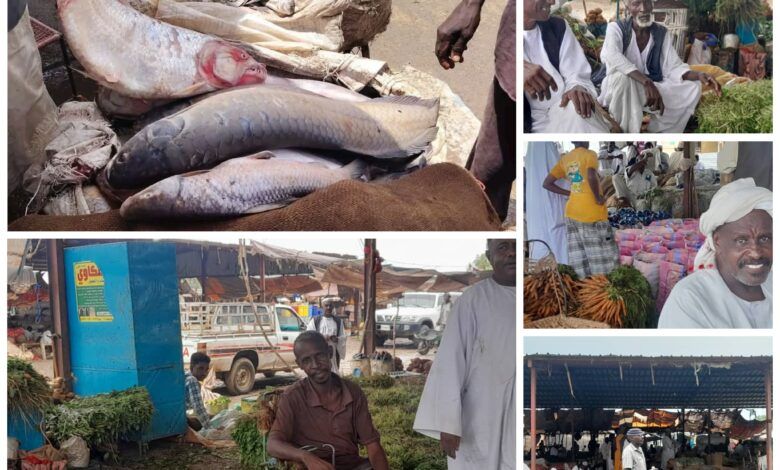
Al-Malja Market. Source: Scoop News
Alongside the Grand Market, Al-Souq Al-Shaabi is considered the second-largest market in the city. It is distinguished by its numerous shops selling household utensils, where locally made products are displayed alongside imported ones, as well as shops selling bed linens and curtains, reflecting the diversity and prosperity of commercial activities in the city. The market also hosts many small local businesses that serve as a primary source of income for numerous families in Kosti.
The influx of displaced people into Kosti since the outbreak of the conflict has placed significant pressure on the local economy. Demand for essential goods and rental housing has increased, driving up prices in the city’s markets, particularly in the Grand Market and Al-Malja Market. At the same time, this influx provided a temporary opportunity for retail and wholesale traders who experienced higher sales, while poor families and available housing faced mounting pressure.
Local reports and field testimonies indicated a sharp rise in rents, from an average of 100–200 thousand Sudanese pounds to 800–900 thousand pounds, which led to overcrowding in available shelters and a lack of alternative housing. As a result, many displaced people were forced to live in markets, mosques, and other public spaces.
Conclusion
Despite the displacement and the economic and service pressures imposed by the war, Kosti remains an example of a city that has managed to preserve its social cohesion and relative stability in the midst of a prolonged national crisis. Between the two banks of the White Nile, the stories of displaced people from the north, west, and south intersect with those of its residents, who have opened their homes and markets to welcome newcomers.
With ongoing youth and community efforts to support those in need and revive local markets, Kosti stands as a testament to the resilience and adaptability of Sudanese cities, and to how the spirit of cooperation and diversity can pave the way toward humanitarian and economic recovery in the future.
